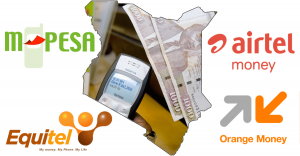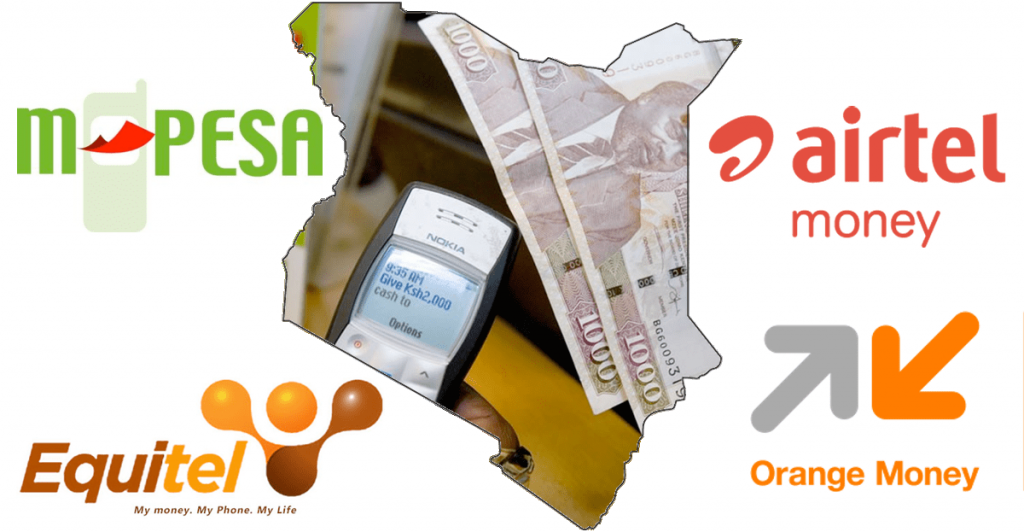The Central Bank of Kenya (CBK) is set to take on a larger role in overseeing mobile money in Kenya. This is coming at a time when the Kenyan government is taking steps to protect the billions of Kenyan Shillings that gets paid via the numerous digital service platforms which continue to grow.

The Cabinet Secretary of the National Treasury; Ukur Yatani revealed that the growth of government services on digital platforms came with an increase in risks of cybercrimes or fraud which could in turn result in the government revenue taking a significant hit.
The Cabinet Secretary via his draft 2021 Budget Policy Statement (BPS) said, “Disruption of mobile services due to infrastructural challenges or cybercrime and fraud could lead to significant loss of potential Government revenue, customer deposits and market confidence. The Government might therefore, be under pressure to compensate losses.”
Ukur Yatani added that, “To mitigate against such threats, CBK is in the process of formulating a National Payments Strategy to address emerging risks and guide the payments ecosystem in Kenya.”
The Kenyan government at present, carries out services which are dependent on cash via digital platforms. These platforms include the Government Human Resource Information System (GHRIS), the Kenya Revenue Authority’s online tax filing system; i-Tax, the Integrated Financial Management Information System (IFMIS), the Huduma number system, the Integrated Payroll and Personnel Database (IPPD), and other e-citizen services as well.
A review of the National Payments Strategy (NPS) draft revealed that the banking regulator will be having a much tighter hold on the administration of e-payment services.
The regulator stated that, “Central banks have always been about money – how money is created, how money is held, how money is exchanged and how money or monetary value is moved.”
It added that it would play an important role in improving the security, stability, and safety, of the numerous payment systems.
The Central Bank of Kenya (CBK) stated that it will make sure all Payment Service Providers (PSPs), comply completely with the tariff and pricing regulations.

In its own words, “The CBK is determined to ensure that pricing practices are reflective of CBK’s overall stance on customer-centricity, affordability and transparency, and is already working with the industry to make this outcome a reality.”
The Central Bank of Kenya (CBK) added that, “Further, the CBK will put particular emphasis on ensuring a culture of compliance cuts across all aspects of payments services, anchored on a strengthened regulatory framework and enhanced oversight.”
Statistics released by the Central Bank of Kenya (CBK) showed that around 4.6 trillion Kenyan Shillings was transacted in Kenya via mobile devices between January 2020 and November 2020. This is a very clear indicator of the growing use and importance of the Digital Marketplace.
Putting aside the increased dangers or concerns of fraud and loss of funds on the e-payment platforms, the increased number of deals executed on the digital space has also attracted the Kenya Revenue Authority (KRA), which has now begun to focus on the numerous businesses that make use of the internet to sell products and also market said products.
Mobile Money Transfer platforms like Airtel Money, TKash by Telkom, and M-Pesa by Safaricom, transact more than 4 trillion Kenyan Shillings in a year.
According to the Communication Authority of Kenya (CA) telecommunications giant; Safaricom which is the market’s Top Dog, has an impressive 98.8 percent of the customers. Airtel Money and other Mobile Money platforms have a market share of 1.2 percent.

The Central Bank of Kenya (CBK) along with playing a larger overseeing role over the telecommunications companies in terms of regulating the charges of mobile money transfers, will also be moving to encourage more competition between Safaricom and other market players like Airtel and Telkom.
In 2020 the Governor of the Central Bank of Kenya (CBK); Patrick Njoroge as part of Kenya’s Coronavirus Relief Programme, directed all mobile money service providers to remove the transaction fees for sums of 1,000 Kenyan Shillings and below.
The directive which was at first meant to last for 3 months i.e from March 2020 to May 2020, was extended to the rest of 2020. The extension was reportedly done without first consulting with the mobile money service providers, and resulted in Safaricom losing 6.08 billion Kenyan Shillings or a 14.5 percent drop in its M-Pesa revenue over a 6 month period in 2020.
Upon expiration of the ‘free’ transaction period, the Central Bank of Kenya (CBK) directed that Safaricom, reduce the transaction fees for low value M-Pesa transactions, by 45 percent.
The Central Bank of Kenya (CBK) also wants easier and more convenient transfer of funds between Airtel and Safaricom including Lipa na M-Pesa. The move is expected to help boost competition and also significantly lower the costs of transactions.
The Central Bank of Kenya (CBK) revealed that the interoperability with regards to mobile transactions was first introduced in 2028 for carrying out money transfer transactions between Safaricom’s M-Pesa and Airtel customers. It added that enough efforts have not been made to ensure seamless transactions because agents and merchants were not included.
Are there any other topics, news or categories that you would like us to write on? Feel free to reach out to Mpesa Pay in the comment section.


